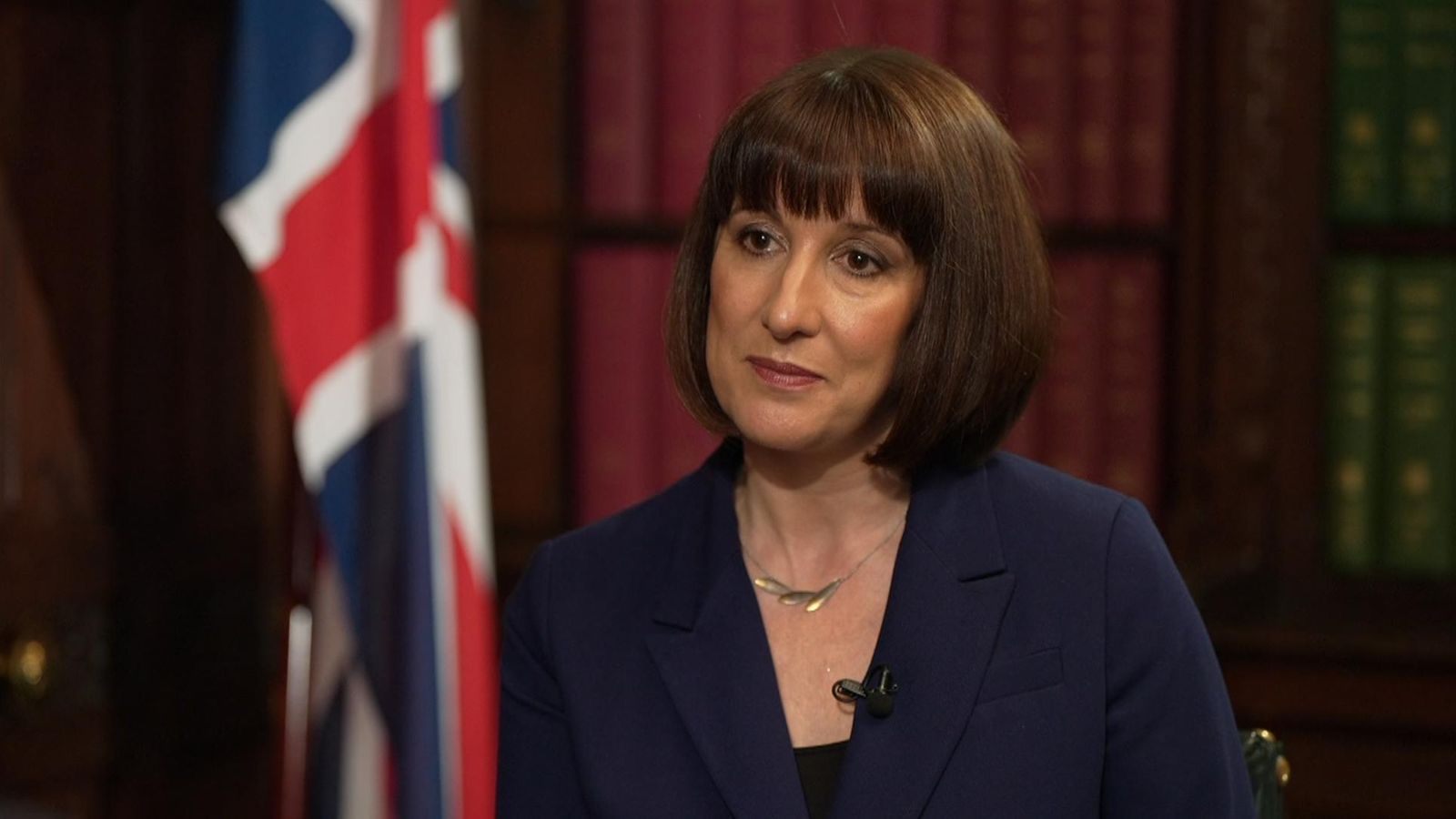The Mais lecture has become a kind of rite of passage for all aspirant chancellors.
This annual speech, held at the Bayes Business School in the City of London, was where Nigel Lawson laid out his thinking about reforming the economy in the 1980s.
It was where George Osborne provided his plan for his first 50 days in office, where Gordon Brown explained the economics behind his policies.
It is, in short, a very big deal.
Money blog: Big drop in inflation predicted
So the merest fact that Rachel Reeves has given this lecture is, in a sense, a part of the story of her ascendancy. If the polls are to be believed, she will shortly be Britain’s next chancellor (its first female chancellor, believe it or not).
This is her moment on the stage, to expand on the economic foundations for her time in government.
Who in the shadow cabinet has appeared most on breakfast TV?
Vaughan Gething: The vet’s son and cricket fan who’s set to become Wales’s first minister
Vaughan Gething: What problems are facing the new Welsh leader?
Please use Chrome browser for a more accessible video player
So in one respect it feels a little churlish to accuse her of providing too little information on the policies she’ll be implementing if she does enter Number 11. The Mais Lecture is all about technocracy, not about big spending pledges.
And on the technocratic front, this lecture certainly delivered. There will be a beefed up role for the enterprise and growth unit inside the Treasury, a new task for the Office for Budget Responsibility to ponder the importance of investment.
And she confirmed, in the most explicit terms yet, that she will not change the Bank of England‘s 2% inflation target – and that her fiscal rules will closely resemble the government’s current ones.
A Tory-sounding speech
But, as you can tell from the last two points there, it is hard, reading the lecture as a whole, to divine a dramatic change from the current nature of government policy.
While the shadow chancellor talks approvingly about the US Democrats’ subsidy schemes for boosting green investment, there is no hint that the UK will do anything similar. Indeed, Ms Reeves has just recently cancelled her plan to increase annual government green investment to £28bn a year.
Perhaps the simplest accusation one can direct at Ms Reeves is that her plan sounds deceptively similar to the ones proposed by the current government.
Indeed, the three priorities from Rishi Sunak’s own Mais lecture of 2022 – encouraging businesses to invest more, improving technical skills and cementing Britain’s position as the most innovative economy in the world – all feature in Ms Reeves’s own lecture.
Please use Chrome browser for a more accessible video player
Now on the one hand, you might well expect journalists, who like news, to complain about the lack of big news in this speech.
But on the other hand it’s not clear that the policy plans provided by the Labour Party are in any way proportionate to the scale of challenge it suggests it faces.
Moreover, while George Osborne committed in his Mais lecture to an emergency budget within 50 days of getting into office, followed shortly by a spending review, Ms Reeves still has yet to confirm she’ll have an emergency budget soon after the next election.
Any policies ahead of the election?
At this stage, a lot of people are rightly wondering whether Labour has any sizeable policies left ahead of the election – especially given the Conservatives have just stolen their plan to abolish non-dom status at this month’s budget.
As it happens, Labour do have plans for an emergency budget within 100 days of the election, and a spending review too.
But they are wary of talking about them too soon – both because of the risk of market instability and because they are bedding in for a long campaign and a late election.
Be the first to get Breaking News
Install the Sky News app for free
The Labour strategists believe it is much more sensible at this point of the electoral cycle – with many months likely left before an election – to emphasise stability and good sense rather than to throw titbits of policy out there into the open.
They suspect that any policies they announce will likely be stolen by the Conservatives – and they might have a point.




